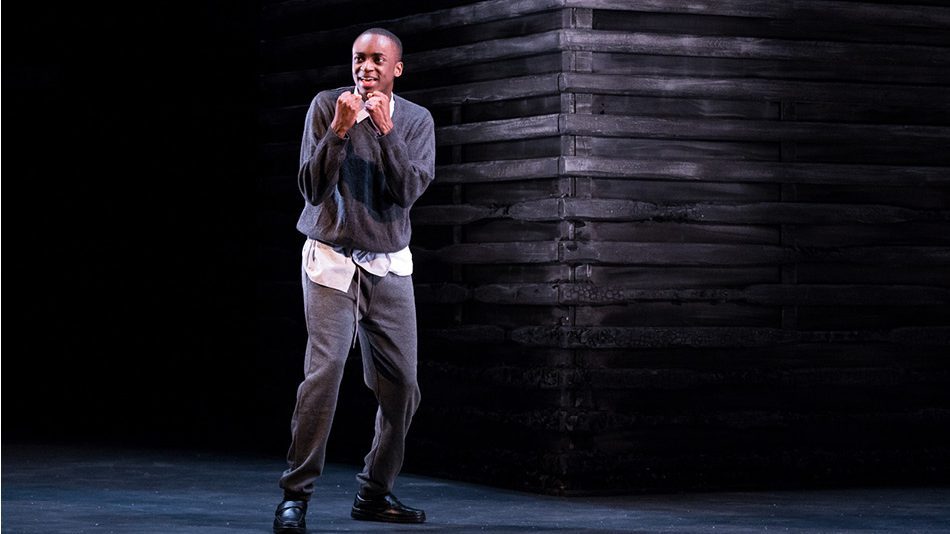Arinzé Kene’s Good Dog, written amidst the backdrop of the Tottenham Riots, captures the life of a young black ‘Boy’ growing up in multicultural inner-city London, reflecting an experience that many, myself included, can easily relate to.
The set itself was incredibly minimalistic with its centre occupied by a big tower block structure, evoking the look of a council estate. This is where Boy lives and often gazes down from, watching and commenting on the movements of the people within his community. Kene’s effortless capturing of the rhythm and cadence of multicultural London through Boy (played by Kwaku Mills) allows us to see the world through his eyes. This is further bolstered by the voice recordings which frequently echo around the stage, allowing us to meet different characters: the shopkeeper, Gandhi, who befriends a stray cat; Trevor Senior and his son, who play cricket outside on the estate; the boys who smoke on the corner; and the shoplifting “wot-wot girls”. The choice of having recordings instead of additional actors allowed for the audience to be enveloped in life on the stage and encapsulated the communal nature of life on a council estate.
The journey through Boy’s life is also reflected in the production’s journey through Black British music. From the early noughties and the songs of Ms Dynamite to the beats of Tinie Tempah, I couldn’t stop myself from singing along. Mills effortlessly plays Boy’s childlike innocence with a delicate charm as we watch the optimistic Boy go through years of bullying, which is only remedied by a philosophy handed down to him from his father, that good things happen to good people. The play’s title, and indeed the concept of a ‘good dog’, is something that we watch Boy grapple with throughout his adolescent years as his character progresses from an air of childhood innocence and naivety to a jaded figure. At the end of the play, it is clear that being ‘good’ is not straightforward and there is a clear difference between what is ‘good’ and what makes you feel good.
A memorable scene is when the now an older and jaded Boy towers over the estate, smoking a joint and wearing a suit far too big for him after his girlfriend’s, Jamila’s, funeral. The actor’s growth from boy to man is both chilling and real. The oversized suit seems to remind us of how young he is; yet, at the same time, we get a sense of how much he has been forced to grow up, as the estate which was his playground now becomes a place of dark memories. Like the dog that bites back after being bullied by her bigger neighbour, both Boy and the society he lives in are at a breaking point. This is where the play reaches its climax – the Tottenham Riots. The London riots of 2011 in response to the murder of a black man, Mark Duggan, started in Tottenham and rippled throughout the country, and Kene powerfully captures the frustration and anger that many felt at the time.
The second black writer to have a second West End transfer at Trafalgar Studios with his play Misty, it is clear from Good Dog that Arinzé Kene is both an incredibly talented actor and writer. Leaving the theatre I realised the significance of the protagonist not being given a name – Kene is telling us that ‘Boy’ could be anyone and his disillusionment is evidence of the disillusionment that many young black men in inner-city London face.



